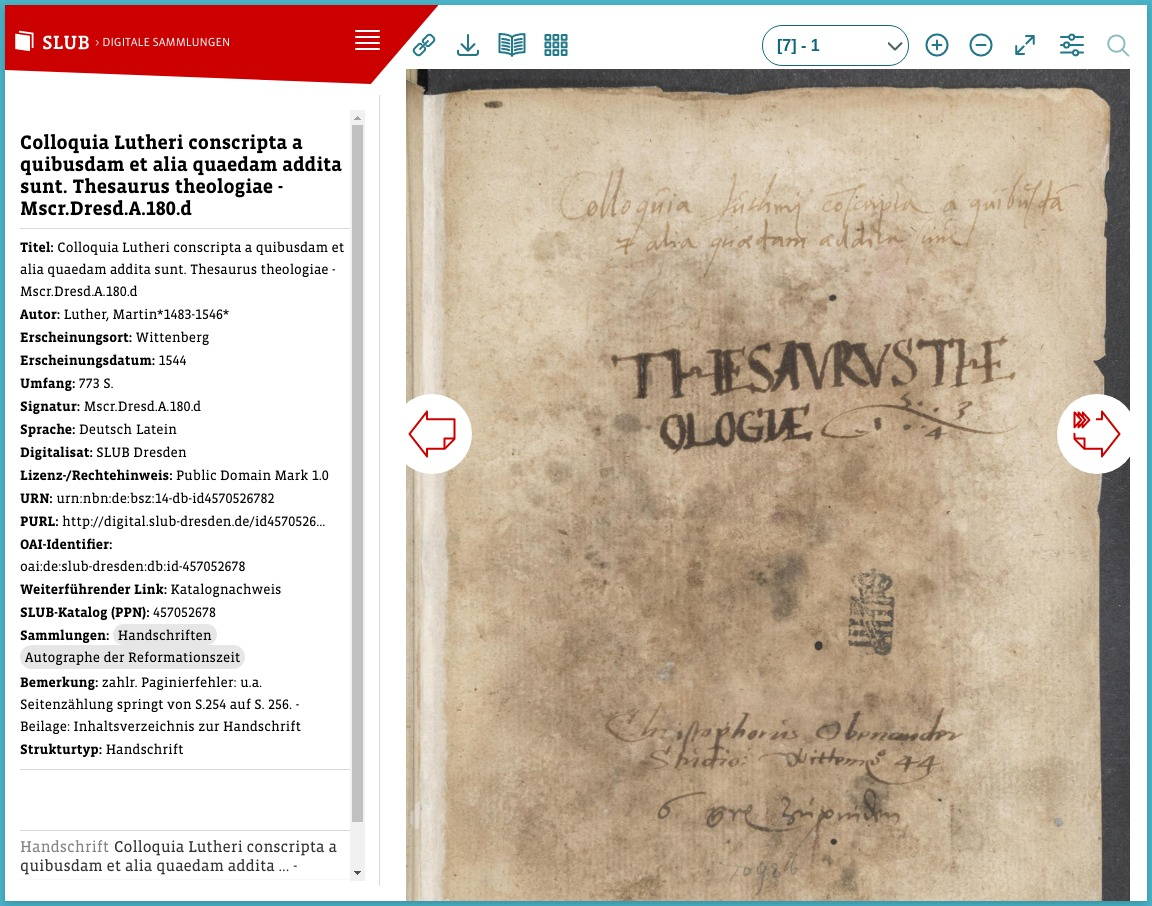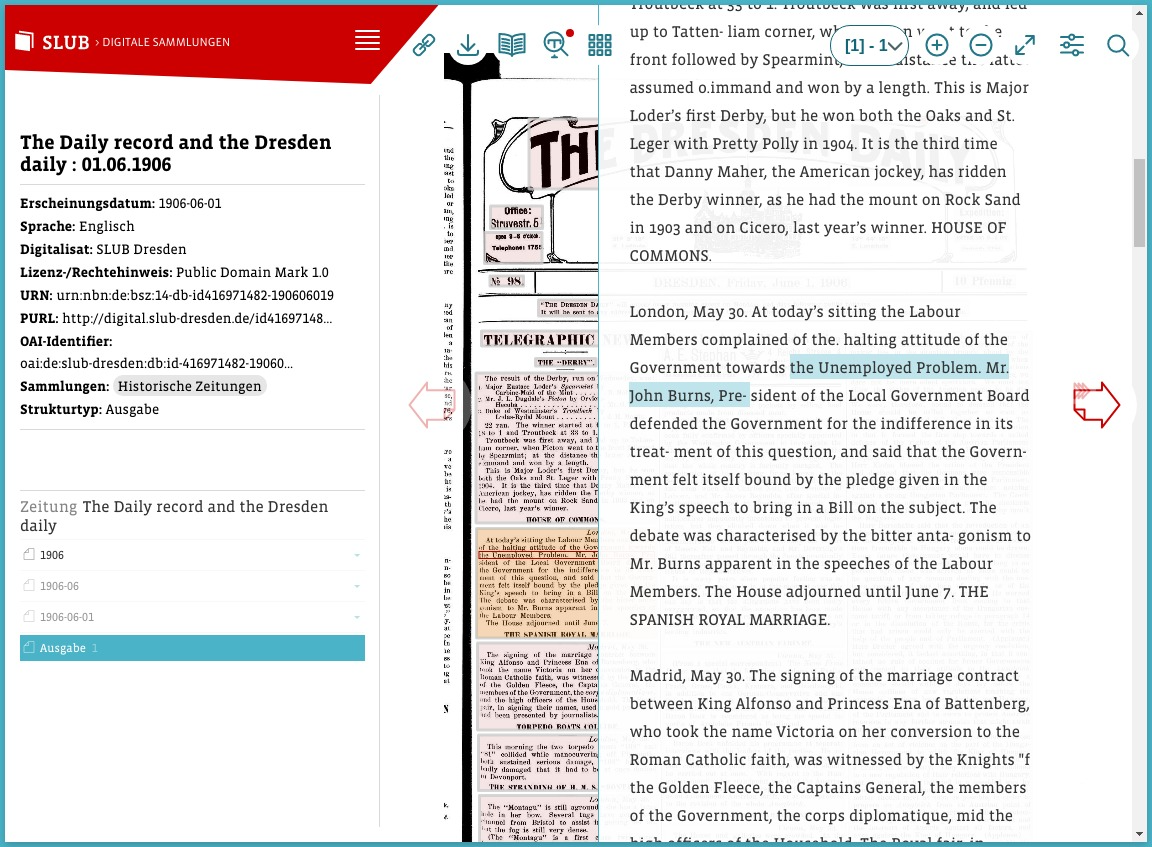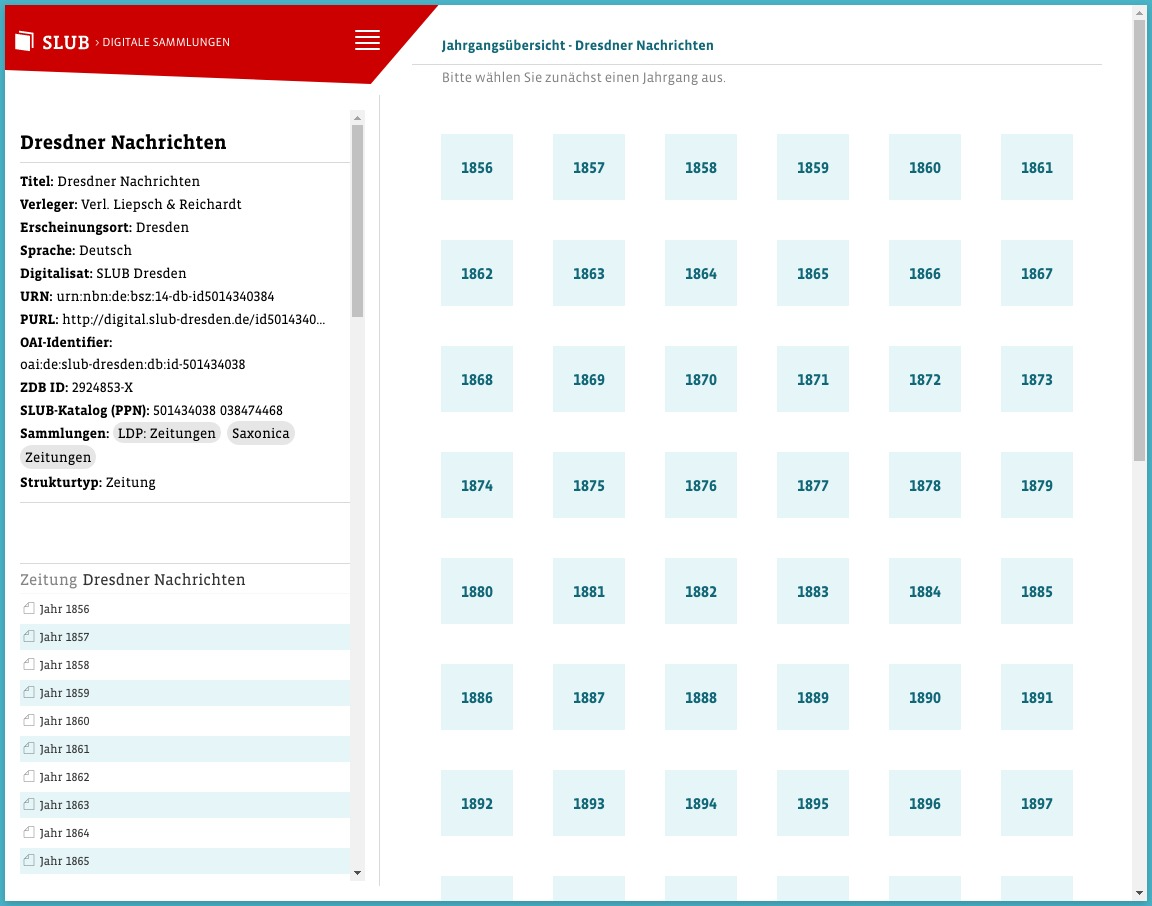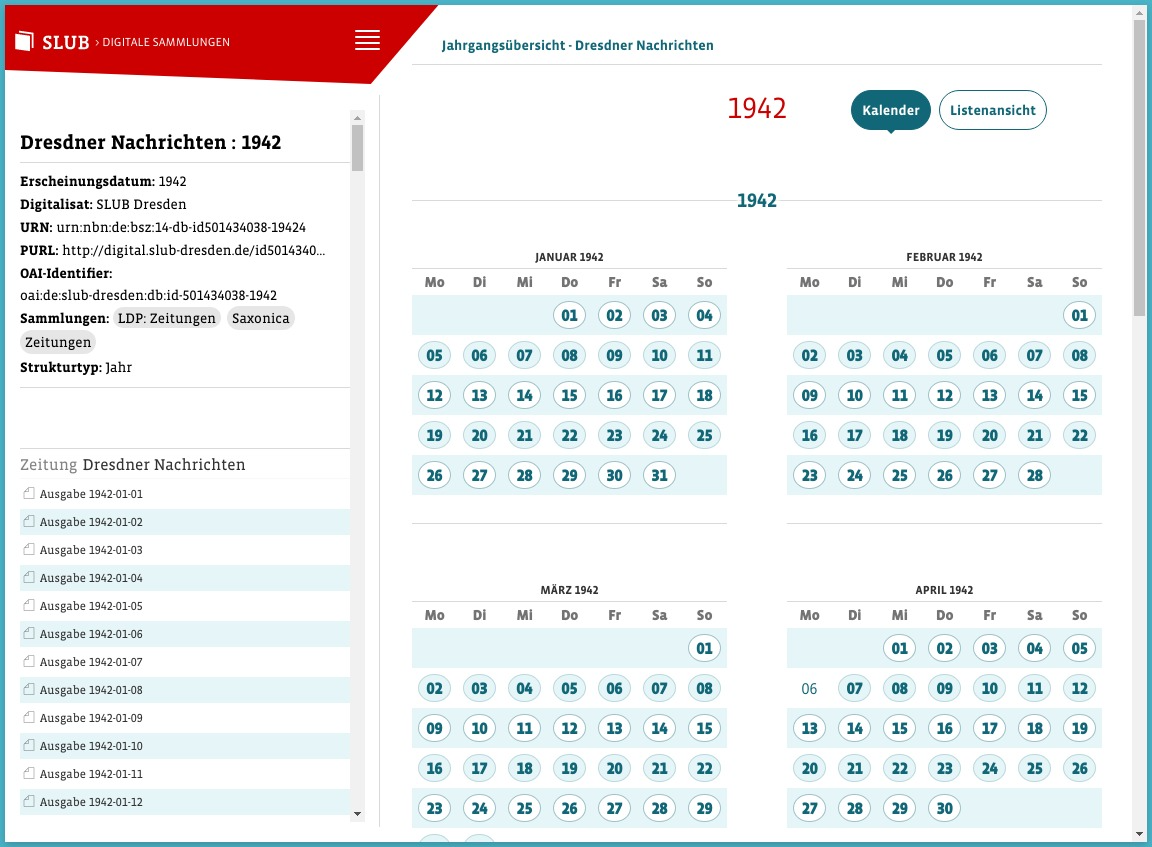Introduction
About Kitodo.Presentation
Kitodo.Presentation is a powerful framework for building a METS-based digital library. It is highly customizable through an user-friendly backend and flexible design templates.
Since it is based on the great free and open source Content Management System TYPO3, it can be integrated seamlessly into your website and can easily be managed by editors.
Kitodo.Presentation provides a comprehensive toolset covering all basic requirements for presenting digitized media: books, archivalia, digital depositary copies, manuscripts and letters, prints, newspapers and magazines.
Download of current version is available on GitHub.
Libraries using Kitodo.Presentation
Amongst others Kitodo.Presentation is known to be used on the following digital presentations:
- Akademie der Künste
- Börsenblatt digital
- Gottfried Wilhelm Leibniz Library Hannover
- Orff-Zentrum München
- Sachsen.Digital
- SLUB Dresden
- SUB Hamburg
- UB "Georgius Agricola" at the TU Bergakademie Freiberg
- UB Mannheim
- Universitätsbibliothek der LMU München
- Württembergische Landesbibliothek Stuttgart
In Kitodo.Presentation, the METS/MODS formats are flexible. Digital collections can be configured for any METS-based format, e.g. METS/TEI for manuscripts.
Unrestricted access to TYPO3 functions, such as user authentication, session handling, language localization, caching, etc., is possible within the Kitodo.Presentation functional modules. The entire system is multi-client capable, i.e. any number of instances of Kitodo.Presentation can be run within a single TYPO3 installation, each with its own configuration, search index, backend pages, access permissions, visual design, etc.
Kitodo.Presentation offers a standard OAI-PMH2-compliant interface for international search capability and digital metadata legibility. We recommend registering your Kitodo installation with the appropriate public OAI registry.
Software Components
The software primarily consists of three modules:
Commons
is a group of classes that build upon the TYPO3 API, adding Kitodo-specific functions, such as handling METS structures and library metadata in various formats, or linking external resources, such as OAI-PMH interfaces or Solr search engines. The API extensions are available to all TYPO3 extensions, which means that they can be used not only by Kitodo.Presentation, but by other extensions as well. Thus, commercial or other very specific functions, which are only necessary in single installations, don't need to be part of the official Kitodo.Presentation release, but can be created as separate extensions.
Modules
is a group of components that are integrated into the TYPO3 backend and manage the configuration of extensions as well as of digital resources, clients and collections. Currently, there is a module for client management as well as integrations with the basic TYPO3 list module to manage the digital resources. In addition, they enable a highly granular configuration of structure and metadata handling as well as database management. Furthermore, a command line interface is provided, which allows automation of procedures, such as importing digital resources.
Plugins
are components that build the frontend output and provide various functions. All plugins can be precisely configured via GUI and freely dropped into TYPO3-managed web pages. All frontend outputs are based on design templates and are thus fully customizable.
Screenshots
Some examples of Kitodo.Presentation in action on the Digital Collection of SLUB Dresden:
https://digital.slub-dresden.de/id457052678

Mscr.Dresd.A.180.d
https://digital.slub-dresden.de/id416971482-19060601

Newspaper Issue with Full-text Switched on
https://digital.slub-dresden.de/id501434038

All Years Overview of a Newspaper Title
https://digital.slub-dresden.de/id501434038-1942

Calendar View of a Newspaper Year
